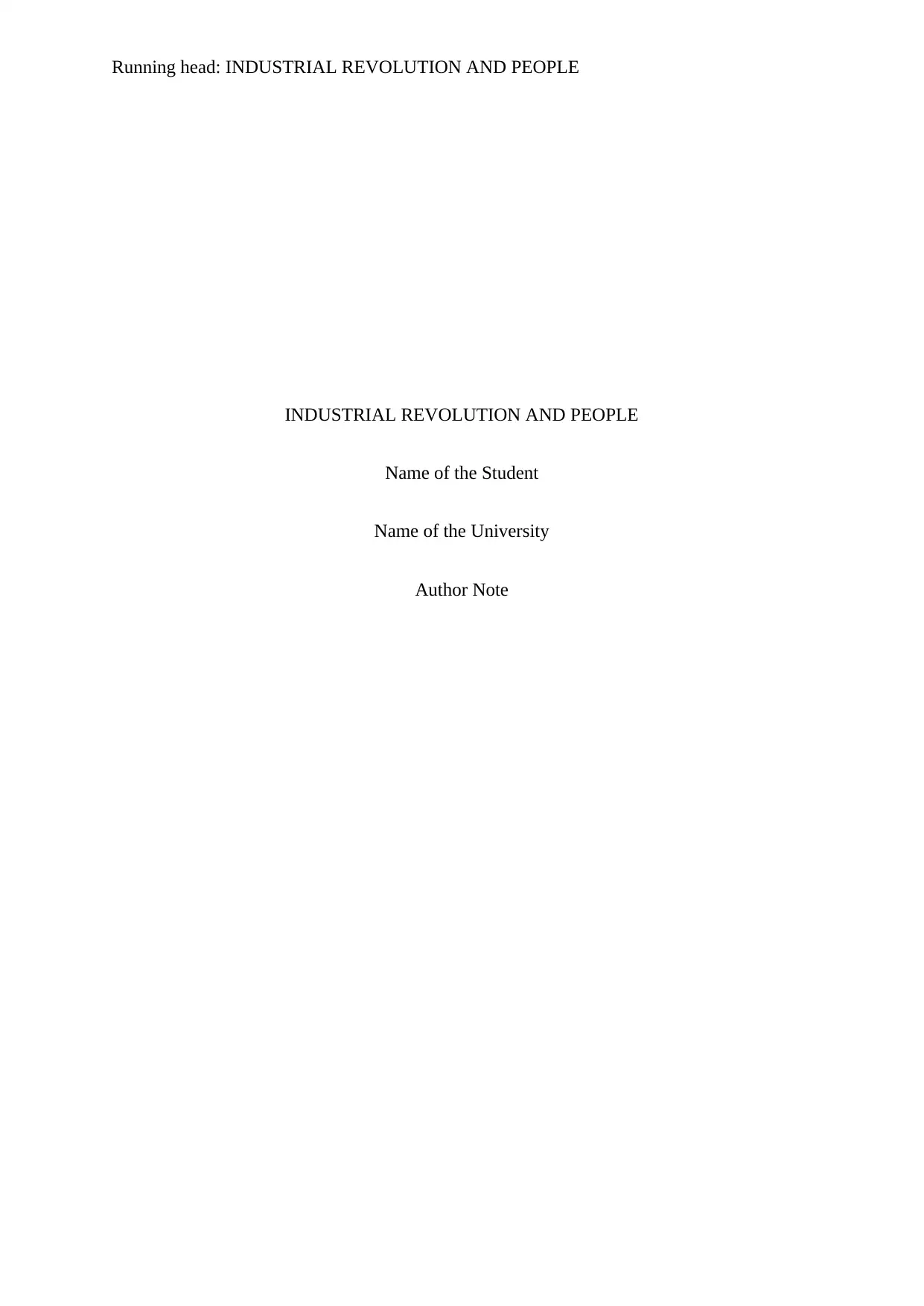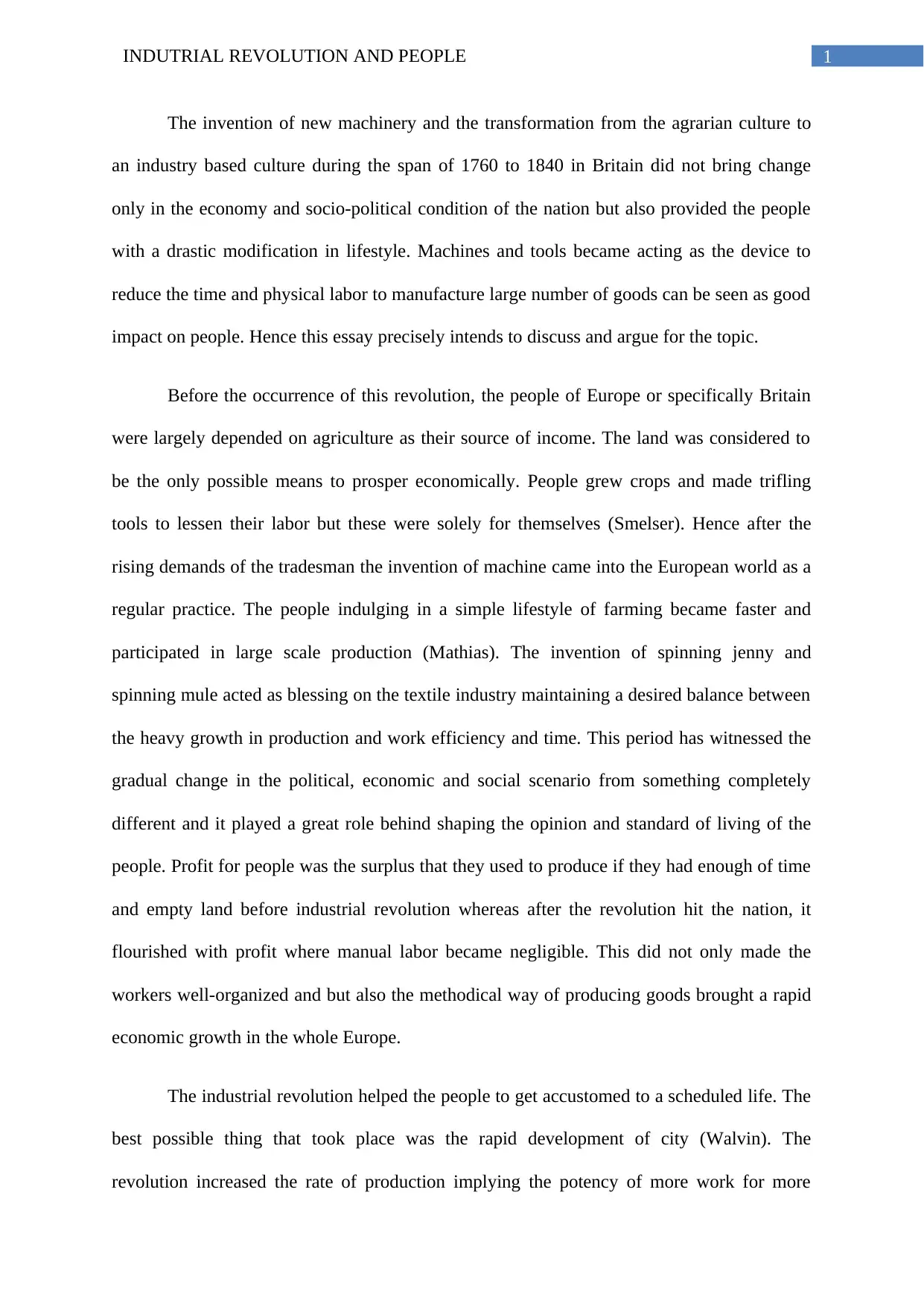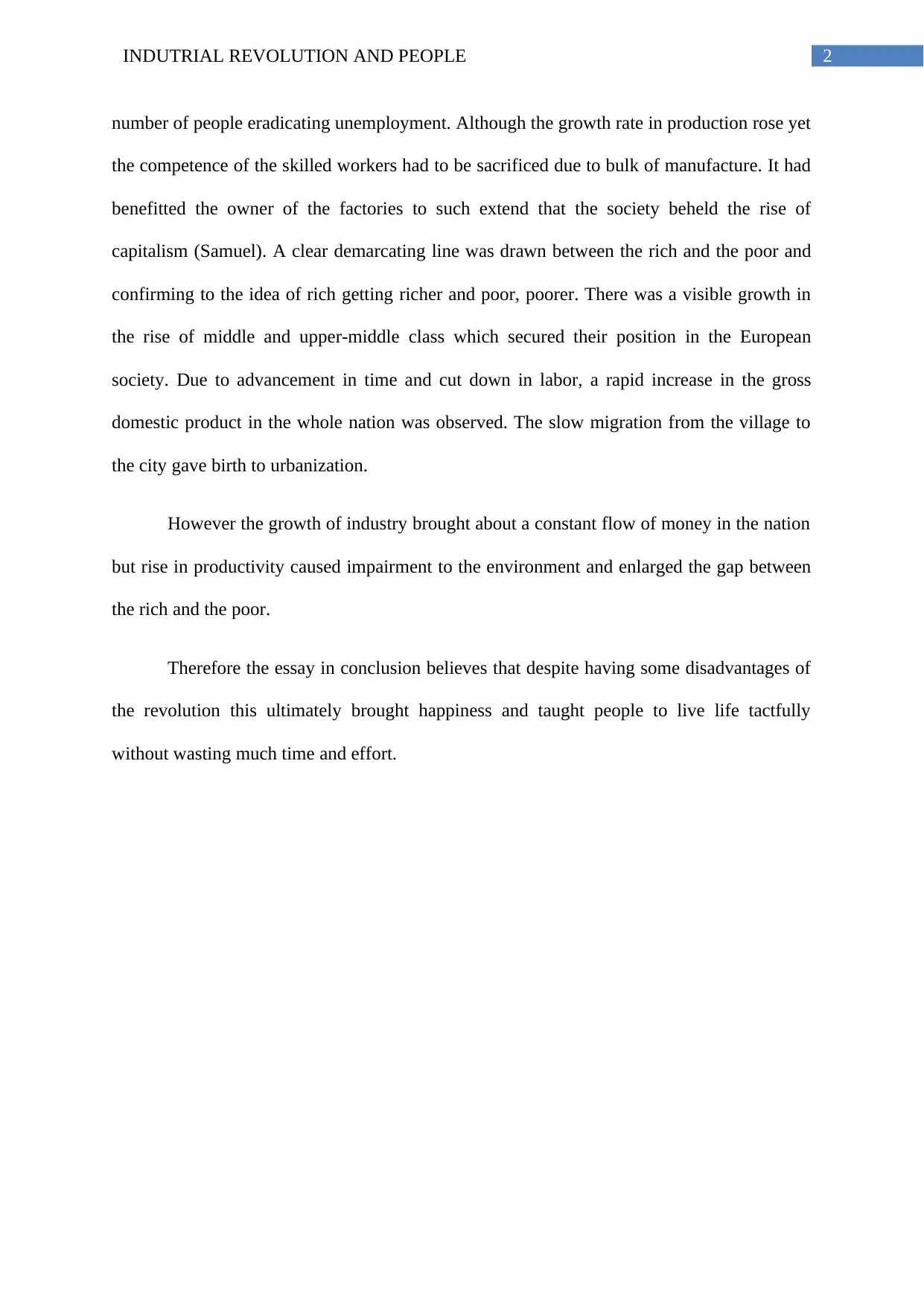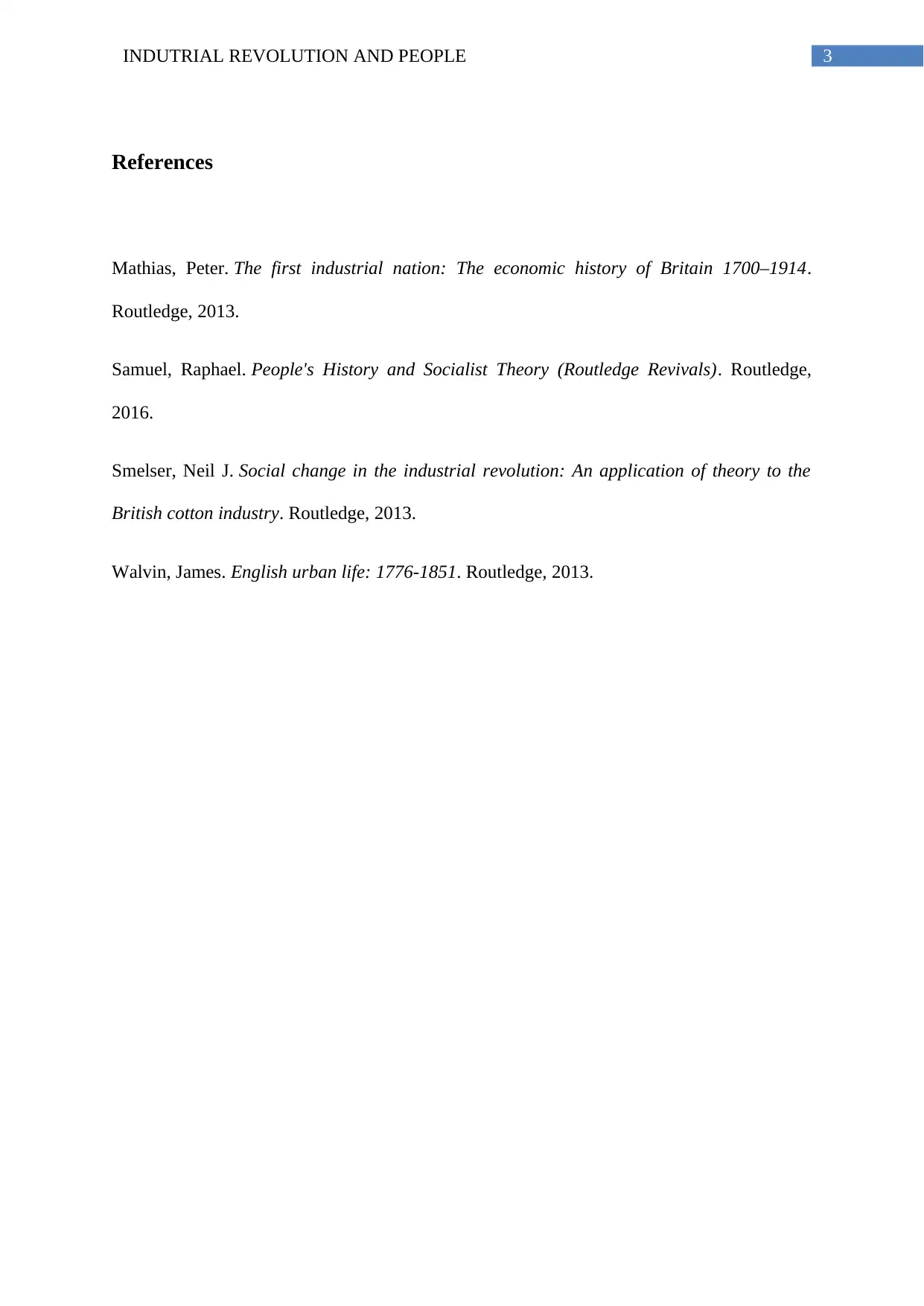An Analysis of the Industrial Revolution's Effect on British Society
VerifiedAdded on 2022/11/22
|4
|699
|217
Essay
AI Summary
This essay examines the profound impact of the Industrial Revolution on the lives of people in Britain between 1760 and 1840. It explores how the invention of new machinery and the shift from an agrarian to an industrial society brought significant changes to the economy, socio-political conditions, and people's lifestyles. The essay discusses the transition from agriculture to industrial production, highlighting the role of inventions like the spinning jenny and spinning mule in the textile industry. It analyzes the economic growth, urbanization, and the rise of capitalism, along with the emergence of social classes. While acknowledging environmental and social disparities, the essay concludes that the Industrial Revolution ultimately improved people's lives by fostering efficiency and progress, despite some disadvantages.
1 out of 4











![[object Object]](/_next/static/media/star-bottom.7253800d.svg)